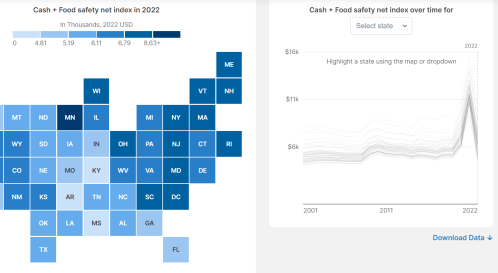Millions of American taxpayers itemize their deductions, one of which is for state and local taxes, or the SALT deduction. Most of these filers are at the upper end of the income distribution and live in high-income urban areas. On this episode, Senior Fellow Richard Reeves, director of the Future of the Middle Class Initiative at Brookings, says the SALT deduction mostly benefits the wealthiest taxpayers, gives little or no benefit to the middle class, and should be eliminated entirely. He also talks about the unusual politics of the debate in Washington, where Democratic leaders are calling for repeal of the SALT deduction CAP put in place in the 2017 tax law, championed by congressional Republicans.
Also on this episode, David Wessel, senior fellow and director of the Hutchins Center on Fiscal and Monetary Policy at Brookings, explains why inflation is back, why it’s different this time, and what the Federal Reserve can do about it. Listen to this segment also on SoundCloud.
Follow Brookings podcasts here or on iTunes, send feedback email to [email protected], and follow us and tweet us at @policypodcasts on Twitter.
The Brookings Cafeteria is part of the Brookings Podcast Network.








Commentary
PodcastEnding the state and local taxes (SALT) deduction
October 22, 2021